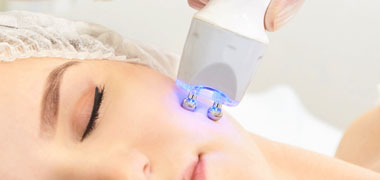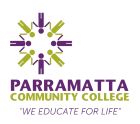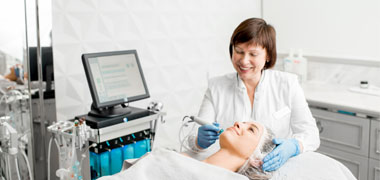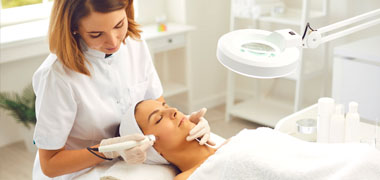
How do I become a dermal clinician?
Diploma of Beauty Therapy
- There are no mandated entry requirements.




Associate Degree in Applied Health Science (Dermal Therapy)
- There are no mandated entry requirements.
 Australasian College of Health and Wellness
Australasian College of Health and Wellness
Related occupations
Nail Technician
Nail Technicians provide manicures, pedicures, and nail enhancements, creating art designs, selling products, and maintaining equipment in salons.
Beautician
Beauticians enhance clients' appearance through treatments like facials, massages, and makeup, with diverse career paths available.
Eyelash and Eyebrow Technician
Eyelash and Eyebrow Technicians offer services like extensions, tinting, shaping, and threading, while managing salon tasks and maintaining equipment hygiene.
Waxing Therapist
Waxing Therapists remove body hair with hot and strip wax, providing aftercare while working in salons, spas, or mobile services.
Spa Therapist
Spa Therapists provide body and relaxation treatments in various wellness settings, focusing on client indulgence and maintaining a serene environment.
Laser Therapist
Laser Therapists use non-ionising radiation for skin treatments, tattoo removal, and hair removal, consulting clients to tailor effective laser programs.
Dermal Therapist
Dermal Therapists carry out laser treatments, chemical resurfacing, and skin therapies, collaborating with medical professionals in clinics and spas.
Beauty Therapist
A Beauty Therapist provides beauty treatments, assesses client needs, and offers product advice, requiring strong communication skills.
Cosmetic Nurse
Cosmetic Nurses perform beauty treatments, provide client assessments and advice, requiring strong communication, customer service, and time management skills.
Makeup Artist
Makeup Artists enhance beauty using cosmetics for various events, create special effects for film and theatre, and design prosthetic masks.
Special Effects Makeup Artist
A Special Effects Makeup Artist creates unique looks for film, TV, or stage by applying makeup for effects like injuries or character transformations.
Hair and Makeup Artist
A Hair and Makeup Artist creates specific looks for performers in film, TV, and theatre, adapting techniques for various productions.
IPL and Laser Technician
An IPL and Laser Technician performs cosmetic skin treatments using light and laser therapies to address various patient concerns.
Electrologist
An Electrologist uses electrical currents for hair removal, conducting consultations and ensuring high hygiene standards in beauty clinics.
Skin Therapist
A Skin Therapist assesses skin conditions and provides treatments like facials and chemical peels to enhance clients' skin health.
Clinical Aesthetician
A Clinical Aesthetician provides specialised skin treatments, using advanced techniques to enhance clients' appearance and address skin concerns.
Common questions
How much does a Dermal Clinician earn?
In Australia, a full time Dermal Clinician generally earns $1,500 per week ($78,000 annual salary) before tax. This is a median figure for full-time employees and should be considered a guide only. As you gain more experience you can expect a potentially higher salary than people who are new to the industry.
What are the job opportunities for a Dermal Clinician?
There has been a strong increase in worker numbers in this industry over the last five years. There are currently 470 people employed in this field in Australia and many of them specialise as a Dermal Clinician. Dermal Clinicians may find work across all regions of Australia, particularly larger towns and cities.
Source: Australian Government Labour Market Insights
How do I become a Dermal Clinician?
If you’re planning a career as a Dermal Clinician, consider enrolling in an Associate Degree in Applied Health Science (Dermal Therapy). This course covers a range of topics to develop your skills and knowledge in the dermal therapy field. A Bachelor of Applied Health Science (Clinical Aesthetics) may also be appropriate.
Further reading


What can you do with a Graduate Diploma of Dermal Science?
13th March 2022)

